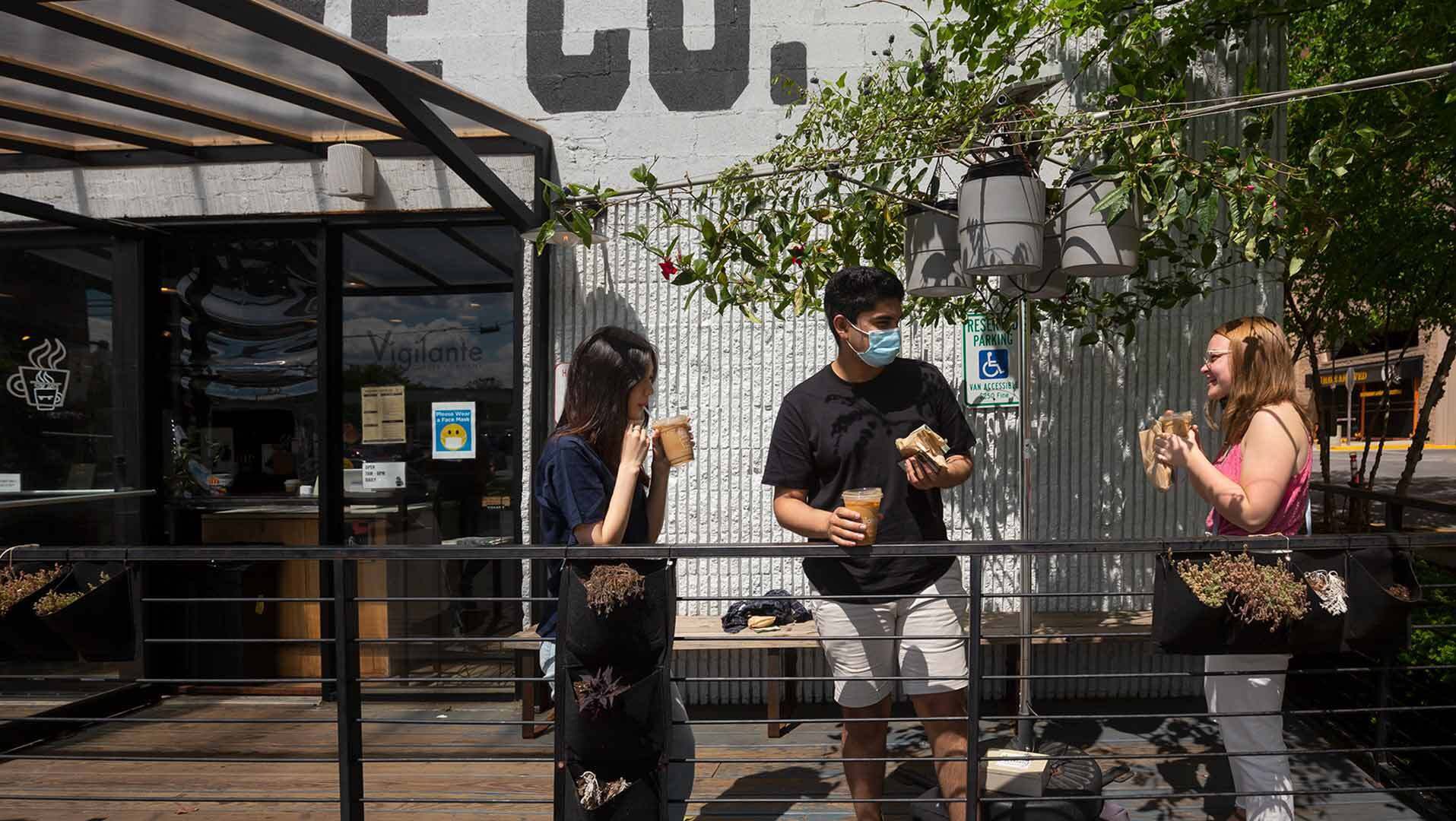- May 05, 2021
- By Graham Binder, Ted Knight and Samantha Watters
Dave Tilley and his family were wilting on a sun-scorched pool deck in Las Vegas when he noticed other vacationers huddled in the shade of a shrub.
The University of Maryland faculty researcher figured Mother Nature could be a little more accommodating. His idea: Combine flowering plants with patio umbrellas to provide an eco-friendly form of shade, cooling and beauty.
Living Umbrellas, now available outside select D.C.-area restaurants and on the shelves at Sam’s Club, produce natural blooms from spring through fall and come with a solar-powered irrigation system.
“All a user has to do is fill the water tank once a week, and it’s good to go,” said Tilley, the product’s inventor and founder of Living Canopies, Ltd. as well as a professor in the Department of Environmental Science & Technology.
After Tilley’s blazing-hot 2015 family vacation, he and former student and co-founder Nick Cloyd ’11, M.S. ’17 got to work on the design and engineering for the canopies.
They get their cooling power from plant evapotranspiration, a natural process where plants and the soils around them release water, which lowers the surrounding temperature. Tilley estimated that users will feel 8 degrees Farenheit cooler sitting under a Living Umbrella versus a plastic umbrella.
They typically feature mandevilla, a flowering vine native to the tropics of Brazil that has been bred into multiple varieties and colors. The umbrellas help reduce carbon emissions and lessen the impact of stormwater run-off, which is particularly valuable in urban areas.
Tilley and Cloyd got support from UMD’s Innovation Gateway, including the Office of Technology Commercialization and the Maryland Technology Enterprise Institute (Mtech), and DC I-Corps, a program co-sponsored by the University of Maryland that is designed to grow and nurture an innovation ecosystem in the region. They also participating in the Bethesda Green’s Innovation Lab.
Living Canopies was also selected for participation in the National Science Foundation’s national I-Corps cohort, which included a $50,000 grant. Tilley and Cloyd secured additional funding from the state’s TEDCO program through the University of Maryland.
Tilley compared his path as a first-time entrepreneur to riding a roller coaster ride during a marathon: “There are ups and downs, quick turns and a few loops that you have to overcome for a long period of time. It takes persistence, quick learning, and a love for constantly meeting new people to make it. Great mentors and an ecosystem of support are also helpful.”
